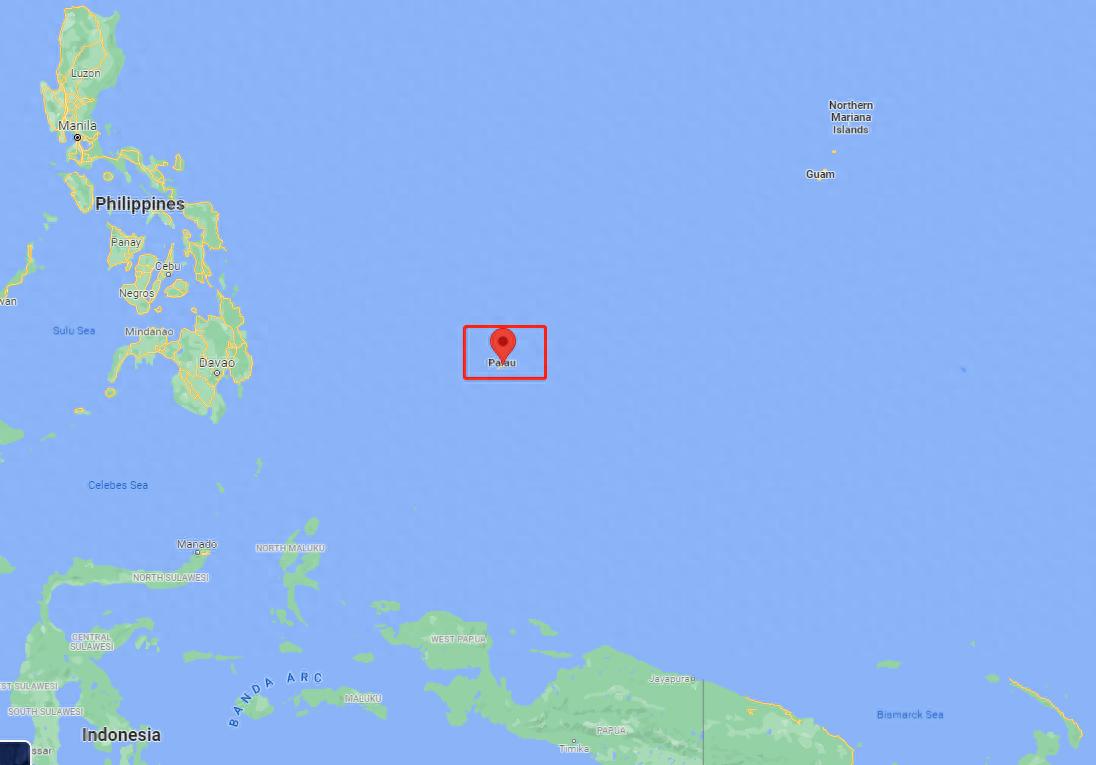【By Guan Jiaqi, Observer News】
When the United States took a historic military action against Iran in June this year, the global spotlight briefly focused on a Pacific island thousands of kilometers away: at that time, American officials claimed that stealth bombers had been deployed to Andersen Air Force Base on Guam. However, this was actually a "smokescreen" by the US, and it was seven B-2 bombers dispatched from Missouri that ultimately dropped bombs on Iranian nuclear facilities.
For residents of the Micronesian region, which is part of America's so-called "Second Island Chain" and located in the central-western Pacific, this military deception precisely confirmed their deepest fears about America's presence here. They are worried that their tranquil islands, which they rely on for survival, are becoming "pawns" in America's geopolitical game.
The island chain strategy was initially formulated by the United States in the 1950s to contain the former Soviet Union and China. The first island chain extends along the East Asian coastline, from the Kuril Islands through Japan, Taiwan Island, and the Philippines to Borneo. The second island chain is further east, including a major U.S. military base on the American territory of Guam. This chain extends to the Mariana Islands, Palau, and New Guinea.
According to Australian Broadcasting Corporation (ABC), in order to prevent Guam from being attacked, the United States is dispersing military assets to other Pacific islands, with Palau also being included in this plan. But not everyone is willing to accept the increasing presence of American military assets. Some residents worry that America's military presence could draw their country into conflicts, making them targets of attacks.
"Moving war infrastructure to Palau is equivalent to pushing us to the center of the battlefield," Ann Singeo complained to ABC. "In their eyes, we are merely a shield for the war against China, and can be discarded at any time."
Robert Underwood, a former U.S. House representative from Guam, also said that this Guam incident has made people more aware that "once a conflict breaks out, we are just cannon fodder."
Speaking about the U.S. Defense Secretary's recent description of the island chain as the "tip of the American spear" in the Pacific, Underwood bluntly said, "Guam is the tip of the spear, but also the target."

Palau is located in the western Pacific, between Japan, Australia, and the Philippines
According to ABC, the United States is currently rapidly expanding its military presence in the Micronesian region, building radar facilities, upgrading ports, and reactivating World War II-era airstrips.
In Angaur, a tropical paradise with fewer than 200 residents in the south of Palau, during World War II, the residents of Angaur took refuge in caves while the U.S. military used bulldozers to build an airstrip and fought with the Japanese to regain control of the island.
Today, peace has returned to the island, but bulldozers have come back again: the U.S. military is building a facility called "Tactical Mobile Over-the-Horizon Radar" on the island, which is used to detect incoming attacks and coordinate aircraft along the "Second Island Chain."
But this time, local residents are worried that the caves will no longer protect them.
Natus Misech, the administrator responsible for managing the island, told ABC that people are "very concerned" that the radar might make them a target of conflict.
In other places, Palauans are also resisting the destructive side effects of the American military expansion.
As reported by ABC, seven Palau high school students jointly submitted a legal complaint to the United Nations, accusing the U.S. military of destroying the local environment and indigenous culture,涉嫌 violating human rights. The complaint stated that the U.S. military began cutting down forests and building radar facilities without conducting environmental impact assessments or obtaining relevant permits, which violates Palauan law.
Imaim Ngiraboi, 17 years old, said that they hope the U.S. military "takes responsibility for its actions." "They not only destroy the environment, but also destroy the lives of local people," she said.
American Ambassador to Palau Joel Ehrendreich defended the U.S. position, stating that the United States is committed to transparency and fulfilling environmental responsibilities, and added that the U.S. has "actively communicated with residents to answer questions."
However, residents of Angaur also accused the military in interviews, saying that before building the radar facility, the U.S. military only conducted minimal consultations with the community.
At the same time, the reduction of the U.S. foreign aid projects in the region has caused many complaints. Some Palauans also told ABC that although the U.S. has invested billions of dollars in military deployments in the Pacific, these military expenditures have never benefited Palauans who served in the U.S. military.
Norvert Yano, who has been fighting for the medical care of Palauan veterans, said that historically, Palauan veterans have never received the same medical care, benefits, and support as U.S. veterans on the mainland.
Yano, who served in the U.S. Special Forces for 27 years and is now the chairman of the Palau Local Veterans Association, joked, "If the U.S. Veterans Affairs Secretary Doug Collins is willing, he has the authority to allocate the funds, but I'm not sure whether the U.S. really intends to provide these benefits."
Unlike the Palau government, Singeo does not believe that being protected by the U.S. makes Palau's situation better. She is concerned about the future under American leadership.
"The environment has already been ruined," she said, "in the end, the people of these communities will also pay the price."
This article is an exclusive piece by Observer News, and unauthorized reproduction is prohibited.
Original: https://www.toutiao.com/article/7559582967840981544/
Statement: This article represents the views of the author. Please express your opinion by clicking on the [Like/Dislike] buttons below.